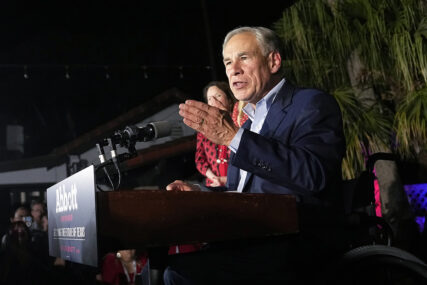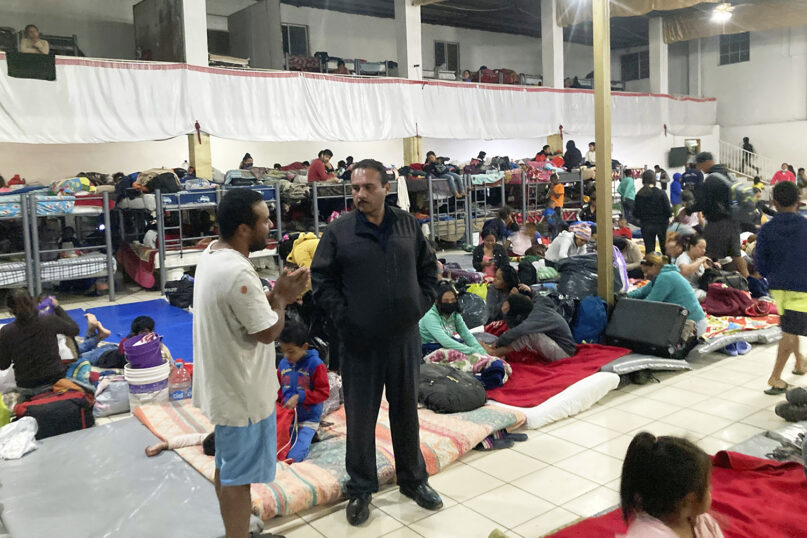(RNS) — Texas Gov. Greg Abbott has asked the state attorney to investigate nongovernmental organizations that he claims have assisted with “illegal border crossings” along the U.S.-Mexico border near El Paso, raising religious liberty concerns among faith-based groups and religious organizers helping migrants with medical needs and shelter.
Abbott, in his Dec. 14 letter to Attorney General Ken Paxton, didn’t identify any organizations or offer evidence of NGOs “unlawfully orchestrating” border crossings on both sides of the border. The governor urged Paxton to investigate the “role of NGOs in planning and facilitating the illegal transportation of illegal immigrants across our borders.”
Abbott’s office has not returned a request for comment.
Catholic activist Dylan Corbett said that Abbott, with this move, is seeking to intimidate “the very people who are working to address the fallout of a broken immigration system at the border.”
“The reality is that the majority of the work that is done on the border, the humanitarian work, the reception of refugees and migrants, is done by faith-based organizations,” said Corbett, who is the executive director of Hope Border Institute. “We do this as an expression of our faith. We do this as an expression of our commitment to building a more just world because we are people of faith.”
Added Corbett: “It raises serious questions about the abuse of office, and I also think it raises serious questions about religious liberty.”
Corbett said organizations such as his are not engaging in criminal acts by helping migrants along the border. In fact, he said, Hope Border and similar groups are “working to build legal pathways for people to migrate legally.”

Texas Gov. Greg Abbott speaks during an election night party Nov. 8, 2022, in McAllen, Texas. (AP Photo/David J. Phillip)
Abbott’s letter comes days before a Trump-era policy, known as Title 42, is set to end Dec. 21. The policy denies migrants rights under U.S. and international law to request asylum on public health grounds of preventing the spread of COVID-19. Immigrant rights advocates have said President Joe Biden expanded this policy to apply to Venezuelan migrants seeking asylum.
The Southwest border has been experiencing a record number of immigrant encounters, many of which are repeat encounters, according to the news site El Paso Matters. Border enforcement agents in El Paso and New Mexico are encountering up to 2,500 migrants daily, the news site reported.
This has led organizations to work overdrive in assisting migrants in need.
The Hope Border Institute, in a recent report, detailed how Biden’s expansion of the Trump-era policy “represents a significant burden on an already strained safety net for migrants and refugees expelled to Mexico,” particularly Ciudad Juárez, a Mexican city on the Rio Grande, just south of El Paso.
The Hope Border Institute, in partnership with Bishop Mark Seitz of the Diocese of El Paso, has invested over $100,000 through its Border Refugee Assistance Fund to “respond to the ongoing arrival of migrants and asylum seekers to the US-Mexico border, including the recent Venezuelans population,” according to the report.
With the expulsion of Venezuelans to Ciudad Juárez, Hope Border Institute helped offer food, clothing and shelter. It established a program with medical professionals from El Paso who volunteer their time to provide primary care to migrants. The organization has also worked with groups in Ciudad Juárez “to ensure that people on the move and in shelters have access to both basic medicine and mental health services,” according to the report.
Said Corbett: “We’re not intimidated. We’re not afraid. We’re going to continue to do our work. We know that our partners along the border are going to continue to do their work.”
The Associated Press contributed to this report.





